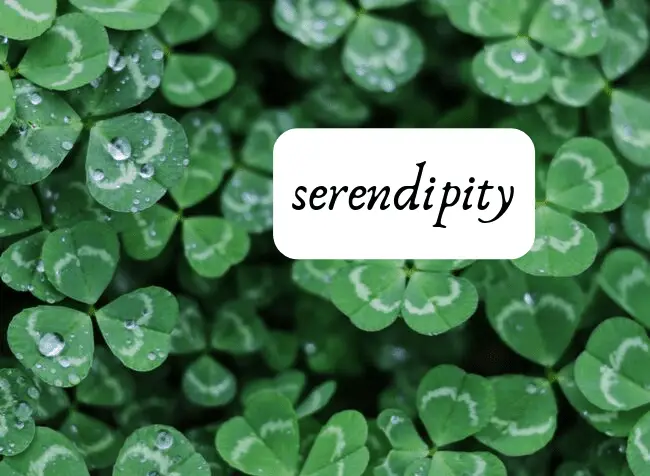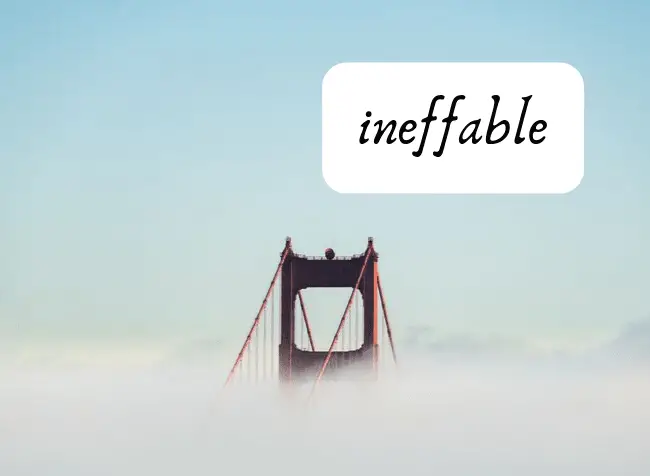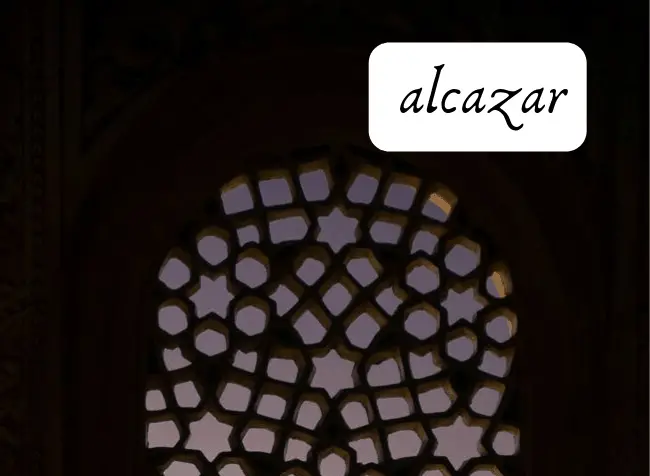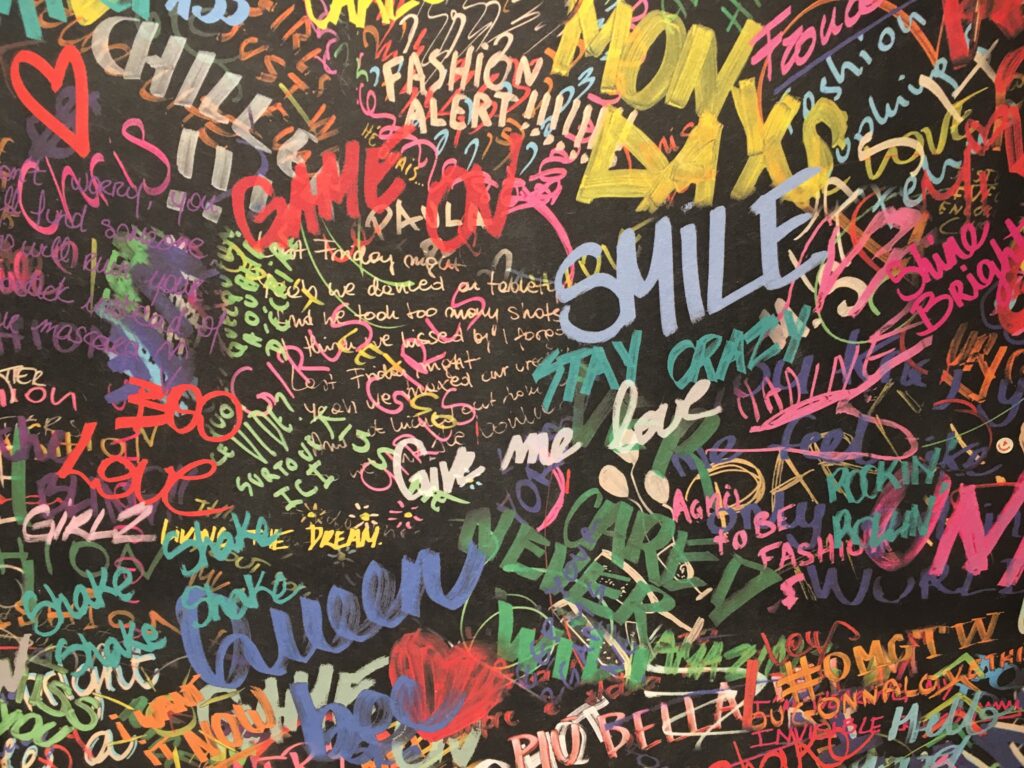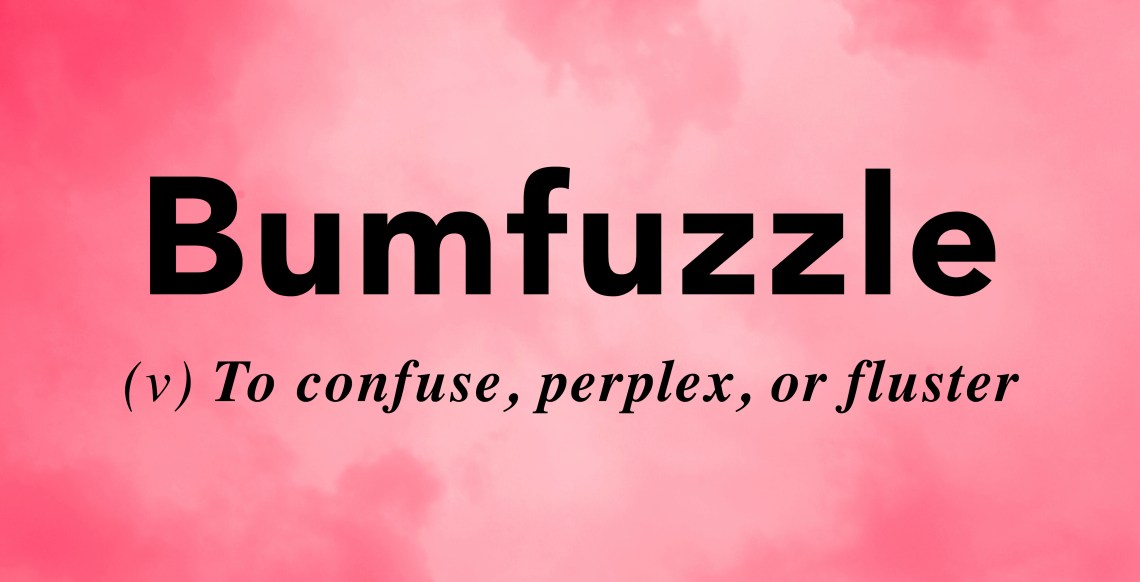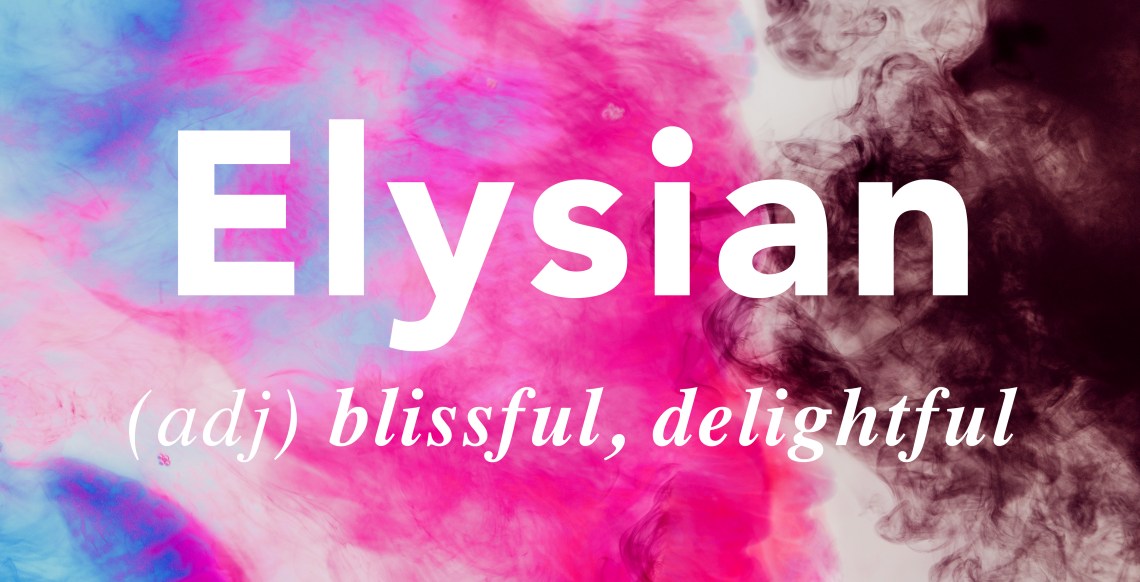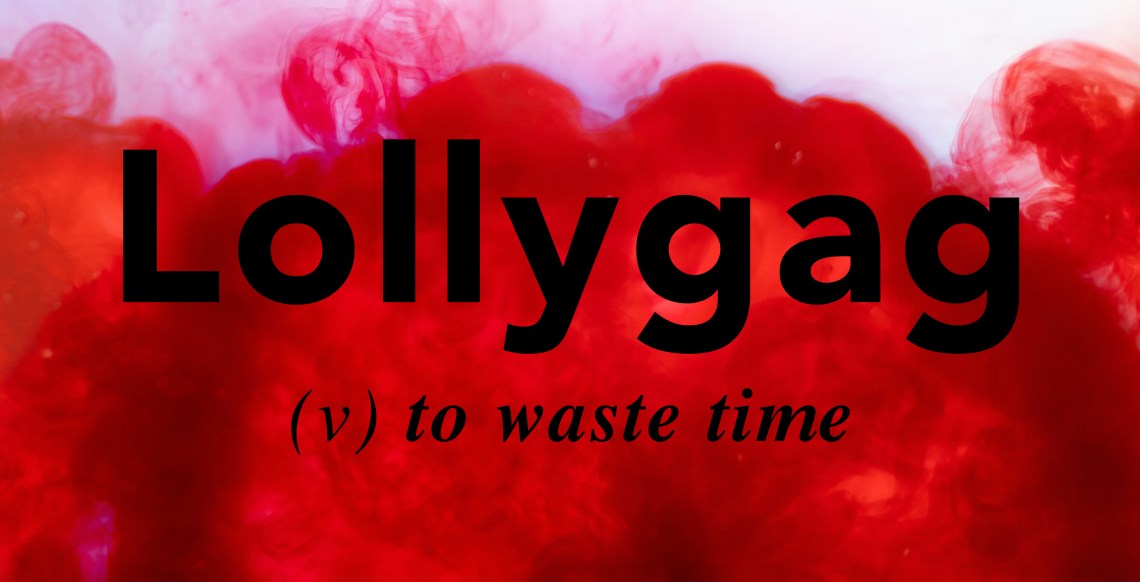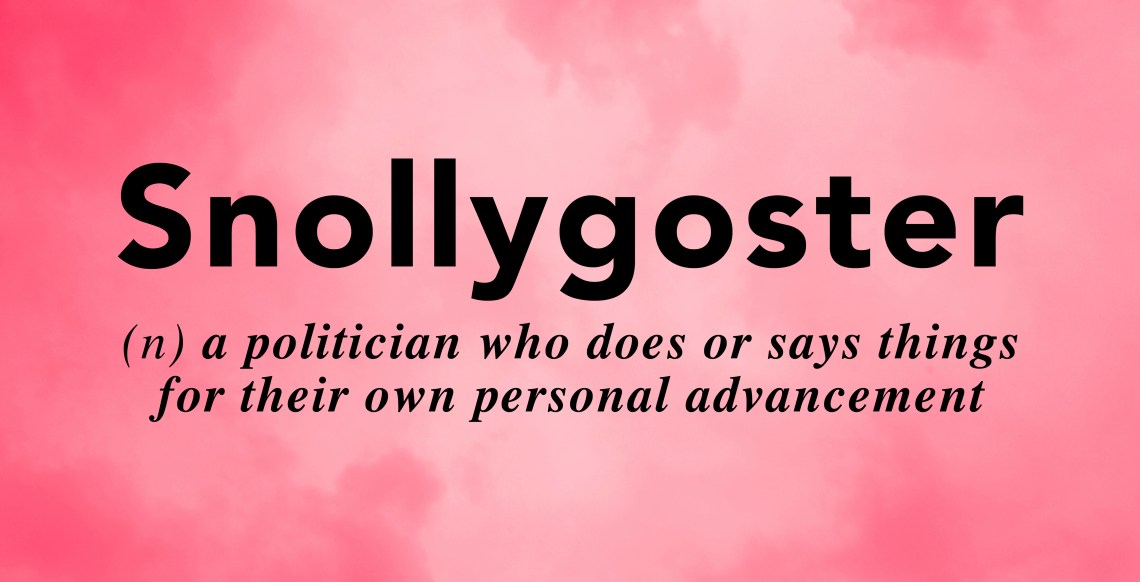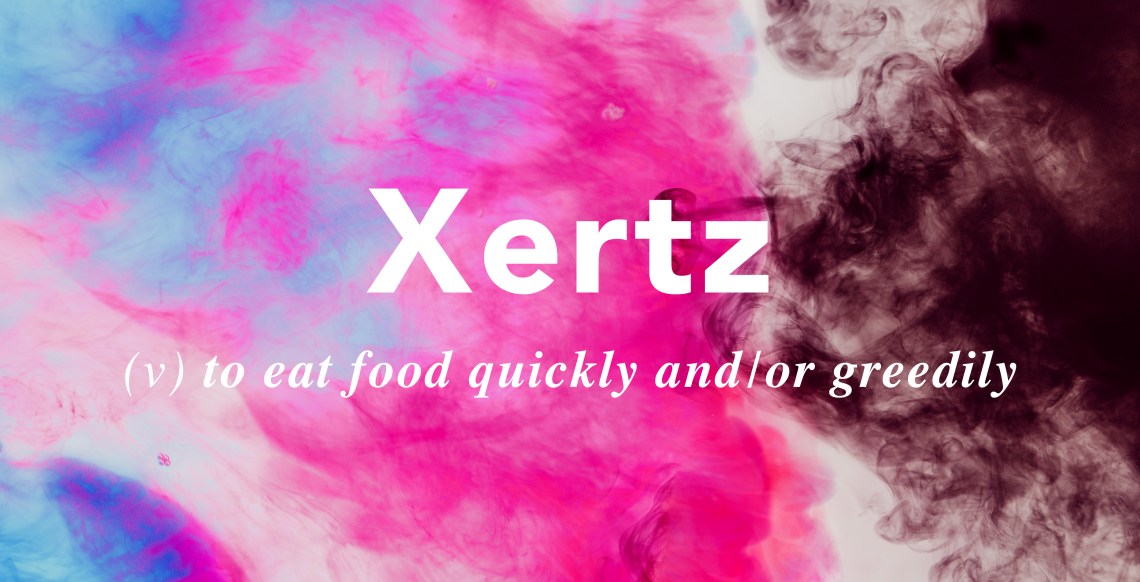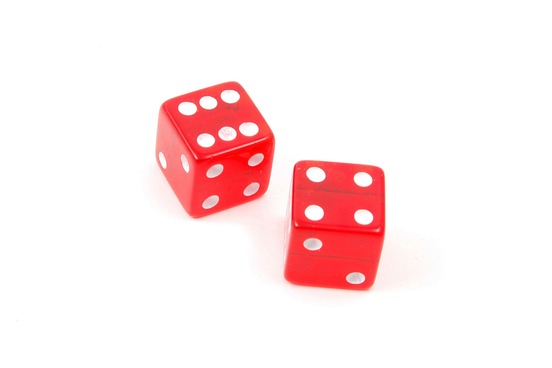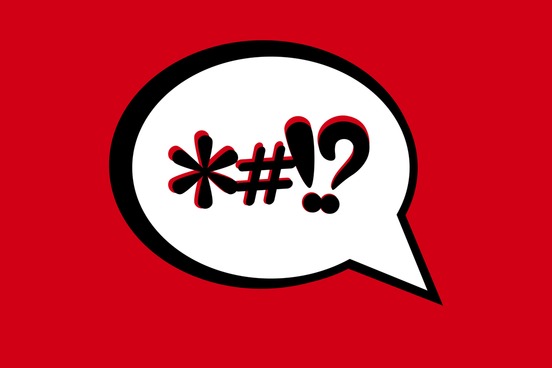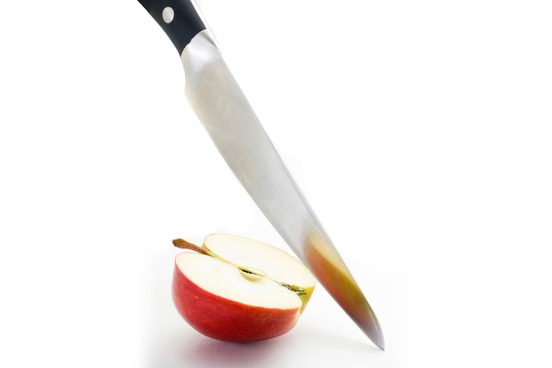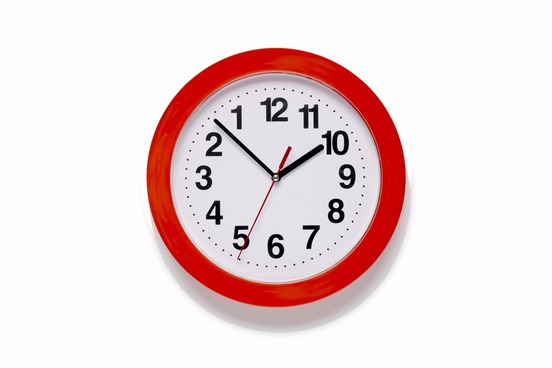
Are you looking for some of the most inspiring English words with deep meanings?
I’m all about learning new vocabulary, so I compiled a list of such words. These are arcane elements of the lexicon that you normally wouldn’t hear in everyday speech. I embellished them with lush definitions that’ll tease your senses.
I was looking to build a glossary of words that could serve as magic spells, igniting your imagination and giving you that goose-bumpy sensation. Like secrets hiding in plain sight!
I did my best to include some of the rarest specimens here, but this list of deep English words is by no means complete.
“I believe in the magic and authority of the words.” – René Char
Here’s a list of 100 English words with deep meanings:
Bibliopole – a dealer in books, especially rare or decorative ones.
Callipygian – having shapely buttocks.
Sabaism – the worship of stars or of spirits in them, especially as practiced in ancient Arabia and Mesopotamia.
Mundivagant – archaic word for “wandering over the world.”
Woodnote – a natural and untrained musical note resembling the song of a bird.
Luminescence – The emission of light by a substance that has not been heated, as in fluorescence and phosphorescence.
Denouement – the outcome of a complex sequence of events.
Effervescence – the property of forming bubbles (or an appealingly lively quality).
Phosphenes – an impression of light that occurs without light entering the eye. It’s usually caused by stimulation of the retina (as by pressure on the eyeball when the lid is closed).
Audacity – the confidence to say or do what you want, despite difficulties, risks, or the negative attitudes of other people.
Desiderium – an ardent desire or longing (a feeling of loss or grief for something lost).
Related content: 115 Advanced Words in English
Ataraxia – calmness untroubled by mental or emotional disquiet.
Somnambulance – walking while asleep.
Psithurism – The sound of the wind rustling the leaves.
Lore – traditional knowledge about nature and culture that people get from their parents and other older people, not from books.
Ardor – an often restless or transitory warmth of feeling or extreme vigor and energy.
Alchemy – studies about substances through which the generation of gold and silver may be artificially accomplished.
Caravan – a company of travelers on a journey through a desert or hostile regions.
Macabre – having death as a subject: comprising or including a personalized representation of death.
Serendipity – the faculty or phenomenon of finding valuable or agreeable things not sought for.
Synchronicity – the coincidental occurrence of events and especially psychic phenomena (such as similar thoughts in widely separated persons or a mental image of an unexpected event before it happens). They seem related but are not explained by conventional mechanisms of causality.
Sidereal – relating to, or expressed in relation to stars or constellations.
Dreamtime – the time of creation in the mythology of the Australian aborigines.
Enubilous – Clear from fog, mist, or clouds.
Talisman – an object held to act as a charm to avert evil and bring good fortune.
Zenith – the highest point reached in the heavens by a celestial body (culminating point).
Pulchritudinous – great physical beauty and appeal.
Feuillemort – having the color of a faded leaf.
Vellichor – the wistfulness of a second-hand bookshop.
Aquiver – marked by trembling or quivering.
Ineffable – incapable of being expressed in words.
Elysian – resembling paradise, causing happiness , relating to the Elysian Fields.
Vigil – the act of keeping awake at times when sleep is customary .
Elope – to run away secretly with the intention of getting married usually without parental consent.
Yore – time past (especially long past).
Nefarious – flagrantly wicked or impious.
Related content: 50 Sophisticated Words in English
Troglodyte – a person, characterized by reclusive habits or outmoded or reactionary attitudes.
Utterance – an oral or written statement, a stated or published expression, power, style, or manner of speaking.
Magniloquent – speaking in or characterized by a high-flown often bombastic style or manner.
Cavalier – marked by or given to disdainful dismissal of important matters.
Apotheosis – elevation to a divine status.
Alcazar – a Spanish palace or fortress of Moorish origin.
Lazuline – of the color of lapis lazuli (vibrant azure blue ).
Evanescent – lasting only for a very short time, tending to vanish like vapor.
Exhortation – language intended to incite and encourage.
Equanimity – a calm mental state when you deal with a difficult situation.
Bravado – a brave and confident way of behaving, especially when you do not feel like this.
Doryphore – a pedantic and annoyingly persistent critic.
Disenthrall – to free from bondage.
Erudite – having or showing knowledge that is gained by studying.
Cosmopolitan – having broad international sophistication.
Felicide – the killing of a cat.
Gerontocracy – a form of social organization in which a group of old men or a council of elders dominates or exercises control.
Unbecoming – unsuited to the wearer, place, or surroundings.
Clandestine – done in secret.
Callow – without the experience of the world.
Epicure – one with sensitive and discriminating tastes, especially in food or wine.
Ignoble – low in character or purpose.
Parallelism – essential likeness.
Antiquarian – one who collects or studies antiquities.
Arborescent – having the nature of a tree.
Ambidextrous – having the ability to use both hands with equal skill or ease.
Scintillate – To admit or send forth sparks are little flashes of light.
Misanthropy – hatred of humankind.
Confidant – one to whom secrets are entrusted.
Perennial – continuing through many years.
Sagacious – able to discern and distinguish with wise perception.
Ravenous – furiously voracious or hungry.
Glimmer – a faint, wavering, unsteady light.
Heresy – an opinion or doctrine subversive of settled beliefs or accepted principles.
Verdant – green with vegetation.
Diaphanous – transparent.
Nonentity – a person or thing of little or no account.
Fallacy – any unsound or delusive mode of reasoning, or anything based on such reasoning.
Preternatural – exceeding what is natural or regular.
Ascetic – given to severe self-denial and practicing excessive abstinence and devotion.
Metaphysics – the principles of philosophy as applied to explain the methods of any particular science.
Vociferate – to utter with a loud and vehement voice.
Related content: 80 Most Beautiful Words in The World
Harbinger – something that foreshadows a future event: something that gives an anticipatory sign of what is to come.
Petrify – to convert into a substance of stony hardness and character.
Encomium – a formal or discriminating expression of praise.
Fastidious – hard to please.
Ultimatum – a final statement or proposal concerning terms or conditions.
Truculent – having the character or the spirit of a savage.
Congenial – having kindred character or tastes.
Octogenarian – a person of between 80 and 90 years.
Euphonious – pleasing to the ear.
Eudaimonia – the condition of human flourishing or of living well.
Maxim – a principle accepted as true and acted on as a rule or guide.
Parable – a brief narrative founded on the real scenes or events usually with a moral.
Eclipse – the obstruction of a heavenly body by its entering into the shadow of another body.
Blasé – sated with pleasure.
Aspiration – an earnest wish for that which is above one’s present reach.
Mobocracy – lawless control of public affairs by the mob or populace.
Anticlimax – a gradual or sudden decrease in the importance or impressiveness of what is said.
Usurious – taking unlawful or exorbitant interest on money loaned.
Contumacy – contemptuous disregard of the requirements of rightful authority.
Munificence – a given characterized by generous motives and extraordinary liberality.
Blaspheme – to indulge in profane oaths.
Annals – a record of events in their chronological order year-by-year.
Concordance – harmony.
Poignant – severely painful or acute to the spirit.
Allusion – an indirect and incidental reference to something without definite mention of it.
Incandescence – the state of being white or glowing with heat.
Subaquatic – being, formed, or operating underwater.
Continence – self-restraint with respect to desires appetites and passion.
Herbaceous – having the character of herbs.
Equilibrium – a state of balance.
Debonair – having a gentle or courteous bearing or manner.
Panacea – a remedy or medicine proposed for all professing to cure all diseases.
Archetype – an original model on which something is patterned.
Enrapture – to delight extravagantly or intensely.
Pariah – a member of a degraded class, a social outcast.
Anthropomorphous – having or resembling a human form.
Apostasy – a portal departure from one’s faith or religion.
Efflorescence – of the state of being flowery, or a flowery appearance.
Hypocrite – one who makes false professions of his views or beliefs.
Defamation – malicious and groundless injury done to the reputation or good name of another.
Heterogeneous – consisting of similar elements or ingredients of different kinds.
Antediluvian – of or relating to the period before the flood described in the scriptures.
Vacillate – move or sway in a rising and falling or wavelike pattern.
Hereditary – passing naturally from parent to child.
Benefactor – a doer of kindly and charitable acts.
Polytechnic – pertaining to embracing or practicing many arts.
Convalescence – the state of progressive restoration to health and strength after the cessation of disease.
Luxuriate – to live sumptuously.
Iridescent – exhibiting the changing rainbow colors, use of the interference of the light.
Clairvoyance – intuitive sagacity or perception.
Perpetuate – to preserve from extinction or oblivion.
Translucent – allowing the passage of light.
Polygamy – the fact or condition of having more than one wife or husband at once.
Propaganda – an institution or systematic scheme for propagating a doctrinal system.
Pandemonium – a fiendish or a riotous uproar.
Reminiscence – the calling to the mind of incidents within the range of personal knowledge or experience.
Melancholy – a feeling of pensive sadness, typically with no obvious cause.
Euphoria – a feeling or state of intense excitement and happiness.
Enigma – a person or thing that is mysterious, puzzling, or difficult to understand.
Ambivalence – the state of having mixed feelings or contradictory ideas about something or someone.
Nostalgia – a sentimental longing or wistful affection for the past, typically for a period or place with happy personal associations.
Catharsis – the process of releasing and thereby providing relief from strong or repressed emotions.
Solitude – the state of being alone or isolated, either physically or emotionally.
Discombobulate – to confuse or disconcert; upset; frustrate.
Obfuscate – to make something obscure, unclear, or unintelligible.
Quintessence – the most perfect or typical example of a quality or class.
Esoteric – intended for or likely to be understood by only a small number of people with a specialized knowledge or interest.
Inscrutable – impossible to understand or interpret; enigmatic.
Vicissitude – a change of circumstances or fortune, typically one that is unwelcome or unpleasant.
Indefatigable – persisting tirelessly; untiring; showing no signs of getting tired.
Mellifluous – sweet or musical; pleasant to hear; smooth and rich.
Soporific – tending to induce drowsiness or sleep; causing lethargy or dullness.
Supercilious – behaving or looking as though one thinks one is superior to others; arrogant and haughty.
Perfidious – deceitful and untrustworthy; disloyal.
Epiphany – a sudden and profound realization or insight.
Paradox – a seemingly absurd or self-contradictory statement or proposition that, when investigated or explained, may prove to be well founded or true.
Discretion – the quality of behaving or speaking in such a way as to avoid causing offense or revealing private information.
Ubiquitous – present, appearing, or found everywhere; omnipresent.
Capricious – given to sudden and unaccountable changes of mood or behavior; impulsive.
Magnanimous – generous or forgiving, especially toward a rival or someone less powerful than oneself.
Ethereal – extremely delicate and light in a way that seems too perfect for this world; heavenly or spiritual.
Cacophony – a harsh, discordant mixture of sounds.
Disconcerting – causing one to feel unsettled; disturbing.
Ephemeral – lasting for a very short time; transitory.
Platitude – a remark or statement, especially one with a moral content, that has been used too often to be interesting or thoughtful; a cliché.
Vicarious – experienced in the imagination through the feelings or actions of another person.
Quixotic – exceedingly idealistic; unrealistic and impractical.
Serene – calm, peaceful, and untroubled; tranquil.
Supine – lying face upwards; failing to act or protest as a result of moral weakness or indolence.
Transcendent – beyond or above the range of normal or merely physical human experience; surpassing all others; supreme.
Epitome – a person or thing that is a perfect example of a particular quality or type.
Are you inspired by this list of deep English words?
The philosopher Terence McKenna once said that the world is made of language. He was definitely onto something because, by using unique words, we construct our reality.
The more beautiful words you have in your mental arsenal, the better you can describe what’s going on around you and within you.
This leads to the emergence of a mysterious sense of wonder and curiosity about the world that makes life worth living.
I hope that the list above inspired you and filled you with a sense of wonder and yearning for high literature .
Rafal Reyzer
Hey there, welcome to my blog! I’m a full-time blogger, educator, digital marketer, freelance writer, editor and content manager with over 10 years of experience. I started RafalReyzer.com to provide you with great tools and strategies you can use to achieve freedom from 9 to 5 through online creativity. My site is a one-stop-shop for freelance writers, bloggers, publishers, content enthusiasts who want to be independent, earn more money and create beautiful things. Feel free to check my archive containing over 600 articles and my YouTube channel for writers and content creators. Ah yes, and stay awesome!
2 words for each letter in the alphabet. The words are fun to say and have a cool meaning. 52 words that make you sound smart when you use them.These words are great vocabulary builders.
52 words
4,869 learners
Learn words with Flashcards and other activities
Other learning activities
Full list of words from this list:
-
zenith
the highest point of something
-
zealot
a fervent and even militant proponent of something
-
yearn
desire strongly or persistently
-
yawner
a person who yawns
-
xenophobia
a fear of foreigners or strangers
-
x-axis
the horizontal axis in a plane coordinate system
-
wonky
turned or twisted toward one side
-
wanton
a lewd or immoral person
-
vermillion
of a vivid red to reddish-orange color
-
vague
lacking clarity or distinctness
-
unique
the single one of its kind
-
uncanny
surpassing the ordinary or normal
-
tenacious
stubbornly unyielding
-
tangible
perceptible by the senses, especially the sense of touch
-
serene
not agitated
-
saquinavir
a weak protease inhibitor used in treating HIV
-
rhetorical
relating to using language effectively
-
rambunctious
noisy and lacking in restraint or discipline
-
quixotic
not sensible about practical matters
-
quell
suppress or crush completely
-
pique
call forth, as an emotion, feeling, or response
-
paradigm
a standard or typical example
-
oxymoron
conjoined contradictory terms
-
optimistically
with optimism; in an optimistic manner
-
nostalgic
unhappy about being away and longing for familiar things
-
narrative
an account that tells the particulars of an act or event
-
misanthrope
someone who dislikes people in general
-
melancholy
a constitutional tendency to be gloomy and depressed
-
lucid
transparently clear; easily understandable
-
lethargic
deficient in alertness or activity
-
ken
range of what one can know or understand
-
karma
effects of one’s actions that determine his or her destiny
-
jurisdiction
the territory within which power can be exercised
-
jejune
lacking interest or significance or impact
-
irony
incongruity between what might be expected and what occurs
-
integrity
an undivided or unbroken completeness with nothing wanting
-
hypnosis
a state that resembles sleep induced by suggestion
-
hyperbole
extravagant exaggeration
-
guise
an artful or simulated semblance
-
gallivant
wander aimlessly in search of pleasure
-
fortitude
strength of mind that enables one to endure adversity
-
fervent
characterized by intense emotion
-
esoteric
understandable only by an enlightened inner circle
-
empathy
understanding and entering into another’s feelings
-
dubious
fraught with uncertainty or doubt
-
disposition
your usual mood
-
cynical
believing the worst of human nature and motives
-
capricious
determined by chance or impulse rather than by necessity
-
bypass
avoid something
-
benevolent
showing or motivated by sympathy and understanding
-
ambiguous
having more than one possible meaning
-
alliteration
use of the same consonant at the beginning of each word
Created on January 4, 2013
(updated January 4, 2013)
Word lovers and Scrabble players alike often seek out and celebrate weird and interesting words, challenging themselves to include these unusual terms in their everyday speech. Eleven of those weird words are explained here; challenge yourself to use some of them in your conversations this week and see how your friends and teachers react.
Bamboozled
adjective bam·boo·zled bam-ˈbü-zəld
Definition: thrown into a state of confusion or bewilderment especially by being deliberately fooled or misled.
History: A word, a Spike Lee movie, a game show that Joey from “Friends” auditions for, and it’s even an app game—his word has made the rounds. It seems that most everyone agrees on the definition of this word, even Urban Dictionary, which defines it as to be tricked or cheated. According to Merriam-Webster, bamboozle (verb) first appeared in 1703, derived from the 17th-century word “bam” which means to trick or con.
Cattywampus
adjective kat-ee-wom-puh s
Definition: askew; awry; positioned diagonally.
History: Cattywampus comes from catawampus, which, according to Dictionary.com, likely came about between 1830 and 1840. It is derived from the prefix cata, meaning diagonally and likely wampus, which the site says is akin to the word wampish, meaning to flop about.
Discombobulate
verb dis-kuh m-bob-yuh-leyt
Definition: To confuse, upset, frustrate.
History: An American word first used in 1825–1835, according to Dictionary.com, it’s a fanciful alteration of discompose or discomfort.
Flabbergast
verb flab-er-gast
Definition: To overcome with surprise and bewilderment; astound.
History: There’s not much known about the origins of this word, though Dictionary.com says it’s from 1765–1775.
Foppish
adjective fop·pish ˈfä-pish
Definition: foolish, silly, obsolete.
History: This funky little word is derived from the word fop, which is used to redescribe a man who is excessively vain and worried about his dress and appearance; it also can mean a foolish or silly person. The adjective of foppish is similarly used to mean that something is obsolete, foolish or silly. It has been rolling off tongues for centuries now, first appearing in the late 1500s.
Jalopy
noun ja·lopy jə-ˈlä-pē
Definition: an old, decrepit, or unpretentious automobile.
History: An oldie but goodie, jalopy has gotten some present-day love from The New York Post. This word—an American term dating to 1925–1930—is often used when referencing items other than vehicles despite its specific meaning. According to Dictionary.com, a “Post” article revived the word once again, this time in an article about people updating their phones rather than buying new ones. The use of jalopy in this article spurred a more than 3,000-percent increase in searches for the word online.
Lothario
noun loh-THAIR-ee-oh
Definition: a man whose chief interest is seducing women.
History: There’s something about this word that seems slick and seductive, so it’s no wonder that it literally means «a man who seduces women.» The word made its debut in Nicholas Rowe’s play, “The Fair Penitent,” originally staged in 1702 and published in 1703. The lead character, Lothario, was a notorious seducer; an attractive man with a charming exterior, he was really a haughty scoundrel whose main interest was in seducing women.
Meme
noun ˈmēm
Definition: an idea, behavior, style, or usage that spreads from person to person within a culture.
History: Believe it or not, the word meme was first used in 1976, as an abbreviation of the word mimeme in Richard Dawkins’ book «The Selfish Gene» in which he discussed how ideas and styles spread within a culture over time. Today, the word has become synonymous with amusing captioned pictures and videos online. Think, Grumpy Cat or Salt Bae.
Scrupulous
adjective scru·pu·lous ˈskrü-pyə-ləs .
Definition: having moral integrity; acting in strict regard for what is considered right or proper; punctiliously exact, painstaking.
History: Scrupulous means that you are proper and have moral integrity, and on the flip side, unscrupulous means, well, the opposite. An unscrupulous person lacks morals, principles, and a conscience. The word is derived from scruple, which means a weight of a mere 20 grains, which was a meticulous measurement for apothecaries.
Tergiversate
verb [tur-ji-ver-seyt]
Definition: to change repeatedly one’s attitude or opinions with respect to a cause, subject, etc.
History: This unique word holds an honor that very few words can claim: it was named the 2011 Word of the Year by Dictionary.com. Why? According to the website, this weird word rose to fame “because it described so much of the world around us. Editors at Dictionary.com saw the stock market, political groups, and public opinion go through a roller coaster of change throughout 2011.”
Xenophobia
noun zen-uh—foh-bee-uh
Definition: fear or hatred of foreigners, people from different cultures, or strangers; fear or dislike of the customs, dress, etc., of people who are culturally different from oneself.
History: Another Dictionary.com Word of the Year, this time in 2016, Xenophobia has a special claim to fame. Meaning «fear of the other,» the folks at Dictionary.com asked readers to reflect on its meaning rather than celebrate it.
The English language has an astounding number of words, and this number continues to grow each year. From preparing for your SATs or IELTS to communicating better with your peers, here are 50 daily use of English words with meanings to add to your vocabulary!
Daily use English words | Some interesting facts
The English language is arguably the most widely spoken language in the world, with approximately 1.5 billion people speaking it regularly. An interesting fact to note is that over 1 billion of this population speak English as a secondary language. The Second Edition of the Oxford English Dictionary (which has a whopping volume of 20) has registered around 171,476 common words in English that are currently in use. This, however, does not account for the wide range of jargon and slang worldwide.
How many words does an average person know? Robert Charles Lee writes that around 3000 words comprehensively cover everyday writing and reading. This includes speech, texts, movies, books, newspapers, and blogs.

Understanding the meaning of some of the most commonly used English words might help you improve your daily language and comprehension. Here are 50 common English words with definitions to help you with everything from discussing current events to writing an experience letter to simply communicating better at your workplace!
1. Absence – The lack or unavailability of something or someone.
2. Approval – Having a positive opinion of something or someone.
3. Answer – The response or receipt to a phone call, question, or letter.
4. Attention – Noticing or recognizing something of interest.
5. Amount – A mass or a collection of something
6. Borrow – To take something with the intention of returning it after a period of time.
7. Baffle – An event or thing that is a mystery and confuses.
8. Ban – An act prohibited by social pressure or law.
9. Banish – Expel from the situation, often done officially.
10. Banter – Conversation that is teasing and playful.
11. Characteristic – referring to features that are typical to the person, place, or thing.
12. Cars – Four-wheeled vehicles used for traveling.
13. Care – extra responsibility and attention.
14. Chip – a small and thin piece of a larger item.
15. Cease – to eventually stop existing.
16. Dialogue – A conversation between two or more people.
17. Decisive – a person who can make decisions promptly.

18. Delusion – false impression or belief.
19. Deplete – steady reduction in the quantity or number of something.
20. Derogatory – disrespectful person or statement.
21. Edible – something suitable to be eaten.
22. Effervescent – an event marked by excitement and high spirits.
23. Eloquent – an individual who expresses themselves effectively and clearly.
24. Elusive – a person skilled at evading capture; a daily use of English words used to describe evasive criminals.
25. Embody – represented in a physical form.

Just a few more…
26. Fabricate – an invention of untrue facts to a story or situation.
27. Feasible – an activity that is possible.
28. Feat – an activity that requires great strength, skill, and courage.
29. Feeble – a person or statement that is unconvincing and weak.
30. Fixation – An obsession over something or someone.
31. Generic – a group or class that does not have a brand name.
32. Gimmick – a device or trick delivered to attract attention.
33. Graffiti – Drawings or writings on a surface in public.
34. Grandiose – a person, plan, or situation that is ambitious, showy, and impressive.
35. Grievous – an event or person causing severe grief.
You’re almost there!
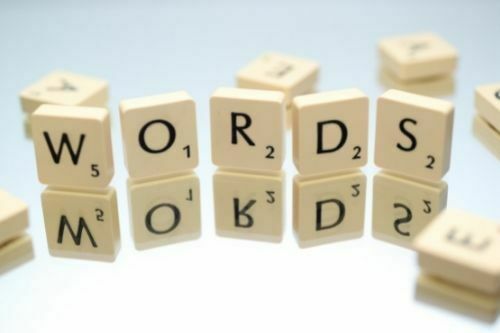
36. Hiatus – A noun among daily use English words describing a gap or a pause in a sequence.
37. Hogwash – Insincere or useless statements.
38. Hostile – an unfriendly person or situation.
39. Huddle – to gather together in a close mass or group.
40. Hindsight – the understanding of an event after it has already happened.
41. Idealistic – a person who is motivated by moral and noble beliefs as opposed to practicality.
42. Imminent – an event or a situation that is about to occur or close in time.
43. Impartial – a person who is free from preconceived notions or undue bias.
44. Imperative – an action that is necessary or crucial.
45. Impromptu – describing a situation that occurs without advance preparations.
46. Jeopardize – the endangerment to a person or situation.
47. Jovial – a cheerful, merry and good-natured person.
48. Jug – a utensil or container used to hold liquids.
49. Jostle – moving through a crowd by means of shoving and pushing.
50. Jubilant – a person or crowd that is full of delight and high spirits.
Key takeaways
- The English language is extensive, with a large number of diverse terms used in daily conversations.
- Regularly updating yourself with some common English vocabulary and learning how to use them will improve your communication in the language.
- You’ll be able to convey yourself and your views much more clearly with the correct words and phrases, making you quite the orator!
Feel free to check out our blog for more such tips! In case of any assistance, reach out to us or drop a comment below!
Happy Learning!
Liked this blog? Read: Improve your English speech with these 6 amazing tips!
FAQs
Q1. What are common sentences in English?
Answer- Some basic sentences that you should know are-
- How are you?
- Thank you so much.
- My name is___
- Nice to meet you.
- Where are you from?
- What do you do for a living
- Excuse me?
- I am sorry.
Q2. How do I improve my English speaking?
Answer- To improve your English you could listen to podcasts, watch movies, listen to music, and of course, read more. You can even make a list of new words you learn and try to incorporate them into your day-to-day activities.
Listen to the iSchoolConnect podcast to learn more about studying abroad and improve your English along the way!
Q3. Can I learn English by myself?
Answer- This might be challenging as you won’t know which areas need improvement, but you can do this on your own. Practice on your own through the tips mentioned above and ask your friends to help you when needed. You can also use different apps like Duolingo to learn English.
By
Last updated:
February 1, 2023
Have you ever heard someone say an English word you didn’t understand?
A lot of English words come from other cultures and languages, so English has a ton of interesting words that you may not be familiar with yet.
The words in this post are considered unique because they have unusual spelling, pronunciation and meanings.
For each word, there is a pronunciation guide from Merriam-Webster, as well as our own audio, plus a definition and an example sentence.
So, let’s look at 16 unique words in English that you can add to your vocabulary lists!
Contents
- 1. Flummox
- 2. Dowdy
- 3. Howdy
- 4. Nincompoop
- 5. Muesli
- 6. Phlegm
- 7. Baloney
- 8. Myopic
- 9. Bamboozle
- 10. Phyllo
- 11. Thwart
- 12. Brouhaha
- 13. Zeal
- 14. Pneumatic
- 15. Noxious
- 16. Flimflam
- Why Learn Unique Words in English?
Download:
This blog post is available as a convenient and portable PDF that you
can take anywhere.
Click here to get a copy. (Download)
1. Flummox
Pronunciation: ˈflə-məks
When you read this word, does it jump out and make you a little confused?
If so, you were right to be confused and puzzled! That’s exactly what flummox (verb) means.
Whenever you see an unusual English word, you’re likely to be flummoxed for a bit until you check your dictionary and find out that its meaning is really quite simple.
2. Dowdy
Pronunciation: ˈdau̇-dē
This word looks simple but it’s unique in that it’s a pretty old word that’s not used often these days.
Dowdy (adjective) is used to describe something that’s old and shabby, not modern or stylish.
Maybe she’s having a bad day. I’ve never seen her wearing anything so dowdy before.
3. Howdy
Pronunciation: ˈhau̇-dē
This word rhymes with the previous word but means something completely different.
Howdy is a casual greeting that is not commonly used, but can add some flavor to your English.
4. Nincompoop
Pronunciation: ˈnin-kəm-ˌpüp
Here’s a word that not only looks funny but sounds funny too. Try saying it out loud!
What’s even funnier is that nincompoop (noun) means a silly person and is sometimes used jokingly to refer to someone who is not very smart.
My house is just down the road from the bus stop. I don’t understand how those nincompoops managed to lose their way.
5. Muesli
Pronunciation: ˈmyüs-lē
Notice the unusual spelling and pronunciation of this word, which was first used in 1939.
Muesli (noun) is a cereal consisting of rolled oats, fruits and nuts. It’s a popular breakfast food in Switzerland.
Eating a bowl of muesli in the morning is a healthy way to start your day.
6. Phlegm
Pronunciation: ˈflem
This word is unusual in that its spelling doesn’t reflect how it’s pronounced.
Phlegm (noun) is the viscous (thick) fluid that blocks your nose and throat when you have the flu.
Phlegm and a runny nose can really make you feel uncomfortable, so it’s best to take the day off and stay home till you feel better.
7. Baloney
Pronunciation: bə-ˈlō-nē
According to Merriam-Webster, this word was first used almost 100 years ago! Do you know what it means? Hint: It has nothing to do with balloons.
Baloney (noun) simply means nonsense and is often used when you disagree with someone.
That’s baloney! Don’t believe a word that he says!
8. Myopic
Pronunciation: mī-ˈō-pik
You may find this word unique because of its unusual spelling.
Myopic (adjective) is the scientific word for nearsightedness, an eye condition in which you’re unable to see objects or images that are far away from you.
I’m myopic. I really need my eyeglasses. I can’t see without them.
9. Bamboozle
Pronunciation: bam-ˈbü-zəl
This word was first used around 300 years ago. That’s really old! Any idea what it means? Hint: It’s not related to bamboo.
To bamboozle (verb) someone means to trick or confuse them.
I went to buy a TV that was on sale but ended up being bamboozled into buying a more expensive unit.
10. Phyllo
Pronunciation: ˈfē-(ˌ)lō
Now, this is a pretty unique word not only because of the way it’s spelled but also because of how it’s pronounced.
Phyllo (noun) is a very thin dough that pastry chefs layer together to form a flaky pastry.
The orange-pecan baklava pie I had yesterday was made with phyllo pastry. Yummy!
11. Thwart
Pronunciation: ˈthwȯrt
This word dates back to the 13th century. Indeed, its spelling is similar to how some old English words are spelled, and it’s unique because it’s still used quite often today.
To thwart (verb) means to ruin (spoil) someone’s efforts or to prevent a plan from becoming successful.
We spent months preparing to climb Mount Everest. Who knew the weather would thwart our plans at the last minute?
12. Brouhaha
Pronunciation: ˈbrü-ˌhä-ˌhä
Here’s an old-fashioned, informal word with a funny pronunciation that was taken directly from French. Are you laughing now? I bet you are. Ha-ha!
Brouhaha (noun) simply means an uproar (upset) or a lot of anger and complaining.
What’s with all that brouhaha? I think he did the right thing by resigning from his position.
13. Zeal
Pronunciation: ˈzēl
Words that begin with the letter “z” are always interesting. This one is also unique because it comes from Latin and Greek and was first used in the 14th century.
Zeal (noun) refers to a strong interest or eagerness in pursuing something.
Her zeal for handmade designer shoes and handbags has made her the talk of the town.
14. Pneumatic
Pronunciation: nu̇-ˈma-tik
Does this word look unusual to you? I find the spelling very interesting. It’s not common for the letter “p” to be followed by “n.”
Pneumatic (adjective) is used to describe something that’s filled with air or gas or that uses air pressure.
Can you think of an example of something that’s pneumatic? That’s right. Car tires, bicycle pumps and vacuum cleaners are all pneumatic.
15. Noxious
Pronunciation: ˈnäk-shəs
Words with the letter “x” are also quite interesting. Note the pronunciation of this word, as it’s not usually how you would pronounce the letter “x.”
Noxious (adjective) often refers to something that’s dangerous, harmful or destructive to living things.
You shouldn’t be standing behind that bus and breathing in all those noxious fumes. It’s bad for your health.
16. Flimflam
Pronunciation: ˈflim-ˌflam
Now here’s a cute and funny word that’s been around since the 16th century, according to Merriam-Webster. Can you guess its meaning?
Flimflam (noun) refers to a trick or a ploy to deceive someone.
If you’re going to buy a used car online, you must be able to separate the flimflam from the facts.
Why Learn Unique Words in English?
Because unique and unusual words are so interesting, they can be both good fun and challenging to learn.
When you look at a unique English word, you may be puzzled about how to pronounce it, or you may wonder why it’s spelled the way it is.
Apart from satisfying curiosity and challenging yourself, it’s easy to see why knowing unique words can be useful if you’re someone who loves playing word games. Many of these words may not be used very often, which may put you at an advantage to win!
Finally, because unusual English words are used less often, using them will make you sound smart.
Remember, the more you practice with these unique English words the more fluent you’ll sound, and you’ll surely impress a lot of people! Learning unique words is one path to becoming an advanced English learner.
So there you have it—a list of unique English words you can add to your vocabulary!
To learn more unusual words by hearing them in context, watch an English-language movie or try a virtual immersion program. FluentU, for example, teaches English vocabulary using web videos enhanced with interactive captions.
So, go out there, have fun and impress everyone!
Download:
This blog post is available as a convenient and portable PDF that you
can take anywhere.
Click here to get a copy. (Download)
Gareth Cattermole/Getty Images
- Though the English language has many quirks, one of its most interesting is homographs: words that are spelled identically but have different meanings or definitions.
- There are at least 10 words with hundreds of definitions each, like «go» and «put.»
- «Run» is anticipated to have approximately 645 different meanings in the next Oxford English Dictionary, set for a 2037 release.
Loading
Something is loading.
Thanks for signing up!
Access your favorite topics in a personalized feed while you’re on the go.
The English language is, indeed, a quirky one: it’s notoriously difficult to learn, and often words have more than one meaning.
Some of these words are called homographs. They’re spelled identically but have vastly different definitions. «Go» has 368, for instance, and «set» has 430. The word «run» is anticipated to have approximately 645 different meanings in the next Oxford English Dictionary, set for a 2037 release.
Keep scrolling to see which 10 words in the English language have the most definitions.
Run: 645 definitions
Syda Productions/Shutterstock
Though there is some debate surrounding the first place position of «run,» as one of the top homographs it has (an anticipated) 645 different definitions, according to a New York Times article from 2011.
The word is widely used to describe various activities: a computer runs a program, a car runs on gas, a candidate runs for office, etc. Of course, as with the rest of the English language, the word continues to evolve.
Set: 430 definitions
Keystone Features/Getty Images
Referred to as the «old chestnut» in the same New York Times article, «set» previously held the top position for the English word with the most definitions.
But «set» «hasn’t undergone as much development in the 20th and 21st centuries as has ‘run,'» Gilliver told the Times. Regardless, «set» holds strong at 430 definitions, per the 1989 O.E.D.
Go: 368 definitions
Prisma by Dukas/UIG via Getty Images
«Go» is one of the most ubiquitous everyday words in the English language. Like many others on this list, it can be a noun, adjective, and verb. It clocked in at 368 definitions in 1989’s O.E.D.
Its top meaning as a verb is «to move from one place to another; travel,» but it can also be «said in various expressions when angrily or contemptuously dismissing someone.» Used in a sentence: «Go and get lost!»
Take: 343 definitions
iStock
The word «take» is described by Merriam-Webster as «to get into one’s hands or into one’s possession, power, or control.» But its meanings stretch across a vast terrain: to «take something in» could also mean «to consider or view in a particular relation.»
It comes in a close fourth place, roughly 20 definitions less than «go:» 343 in the 1989 O.E.D.
Get: 289 definitions
Nicky J Sims/Getty Images
Like «go,» «getting» is one of those commonplace words that we use so much, we don’t even realize how much we use it. We «get» coffee.» We are «getting» dolled up for a date. We «got» a bad grade on that test.
According to the 1989 O.E.D., it has 289 definitions, to be exact.
Turn: 288 definitions
REUTERS/David Gray
The word «turn» is nestled closely behind, with only one less definition than «get.» It can take on many other meanings beyond «moving in a circular direction,» including «passing the age or time of» something. In a sentence: «I turned 40 last year.»
Put: 268 definitions
Valentyn Ogirenko/Reuters
«In terms of sheer size, the entry for ‘run’ is half as big again as that for ‘put,'» said the New York Times article. But that doesn’t make «put» any less impressive, with exactly 268 definitions in total.
«Put» also may be a reason for «set»‘s decline in popularity, as we tend to use the former in favor of the latter these days. For example: we «put» the drinking glass down, rather than «set» it down.
Fall: 264 definitions
Eduardo Munoz/Reuters
Perhaps the most embarrassing of the list (in verb form, that is), «fall» clocks in at about 264 definitions in the O.E.D.
Though we all know fall’s most common definition as a verb — «to descend freely by the force of gravity» — it’s interesting to note that «fall» is also used to refer to lambs giving birth, according to Merriam-Webster.
Read next
english
Language
More…
These interesting words will help you sound smarter in any conversation.
You send dozens of texts and spend hours talking every single day — but you are reusing most of your words. You are repeating yourself without even realizing you are doing so. There are hundreds of interesting words that you have never even heard of before (or you might have already heard but have no idea how to use them in a sentence).
It’s time to learn something new, to broaden your vocabulary, to sound even more eloquent than you already are. If you can find a way to slip these words into everyday conversation, you are going to look like the most intelligent person in the room.
Aa — a kind of volcanic lava that forms jagged masses with a light frothy texture
Abibliophobia — afraid of running out of things to read
Aquiver — trembling
Aurora — dawn
Aplomb — self-confident
Acnestis — between the shoulder blades and the loins which an animal cannot reach to scratch
Apropos — appropriate
Atrate — dressed in black
Agelast — a person who never laughs
Agastopia — admiration of a particular part of someone else’s body
Bibliopole — a person who buys and sells books, especially rare ones
Biblioklept — a person who steals books
Bibble — eating or drinking noisily
Bloviate — people who talk for a long period of time
Balter — dance clumsily
Bedizen — dress gaudily
Bleb — a blister
Boondoggle — a waste of time and money
Burke — murder without leaving a trace on the body
Borborygm — hungry
Bombinate — making a humming or buzzing noise
Bumbershoot — an umbrella
Cattywampus — in disarray
Collywobbles — a weird feeling in your stomach
Cahoots — secret partnership
Caruncle — the triangular, pink areas at the corner of your eyes
Churlish — rude
Compotation — a drinking party
Conspuer — to spit with contempt
Comeuppance — getting what you deserve
Cancatervate — heaping things into a pile
Cabotage — the exclusive right of a country to control the air traffic within its borders
Cromulent — appearing legitimate but actually being spurious
Donnybrook — an uprising, a melee, or a riot
Darkle — becoming cloudy or dark
Defenestration — the act of throwing someone out of a window
Denouement — the resolution of a narrative
Doodle sack — bag pipes
Duffifie — laying a bottle on its side for some time so that it may be completely drained of the few drops remaining
Draconian — unusually severe
Erinaceous — resembling a hedgehog
Ethereal — Extremely delicate, light, not of this world
Egress — an exit
Ennui — bordem
Erratum — an error in printing
Epistemology — the study of knowledge
Esoteric — knowledge that is only available to a select group of people
Epoch — A particular period of time in history or a person’s life
Eurhythmic — an aesthetically pleasing rhythm or structure
Flibbertigibbet — silly and overly talkative
Foppish — foolish, silly, obsolete
Fugacious — fleeting or transient
Fillip — snapping your fingers
Gubbins — an object that has little or no value
Grawlix — a series of symbols commonly used in comics or cartoons to represent curse words
Grommet — an eyelet of firm material to strengthen or protect an opening or to insulate or protect something passed through it
Hubris — excessive presumption, exaggerated pride or self-confidence
Halfpace — a platform of a staircase where the stair turns back in exactly the reverse direction of the lower flight
Hiraeth — A homesickness for a home you can’t return to, or that never was
Impignorate — pawning something
Interrobang — a punctuation mark designed for use especially at the end of an exclamatory rhetorical question; usually written as ?!
Interfenestration — the space between two windows
Ineffable — Too great to be expressed in words
Jentacular — pertaining to breakfast
Jalopy — an old, decrepit, or unpretentious automobile
Kyphorrhinos — a nose with a bump in it
Lamprophony — loudness and clarity of enunciation
Limerence — being infatuated with another person
Logophile — lover of words
Lothario — a man whose chief interest is seducing women
Malarkey — insincere, foolish talk
Macrosmatic — having a good sense of smell
Meldrop — a drop of mucus at the nose, whether produced by cold or otherwise
Metanoia — a spiritual transformation
Meme — an idea, behavior, style, or usage that spreads from person to person within a culture
Nincompoop — an idiot
Nibling — the gender-neutral term for nieces or nephews
Nefarious — Wicked, villainous, despicable
Numinous — spiritual, supernatural
Nudiustertian — the day before yesterday
Oblivion — the state of being unaware of what is happening around you
Octothorpe — the hashtag symbol
Obelus — the division symbol
Oxter — armpit
Pandiculation — yawning and stretching
Pauciloquent — someone who doesn’t say much
Pilgarlic — a bald head
Phosphenes — the light and colors produced by rubbing your eyes
Petrichor — The pleasant, earthy smell after rain
Preantepenultimate — fourth from last
Paresthesia — the prickly feeling when your limb “falls asleep.”
Poobah — a powerful person.
Pogonotrophy — growing and grooming a beard or other facial hair
Rasher — a thin slice of bacon
Taradiddle — filled with pretentious nonsense
Tergiversate — to change repeatedly one’s attitude or opinions with respect to a caus
Snickersnee — a long, dangerous knife
Salopettes — high-waisted skiing pants with shoulder straps
Supine — Lying face upwards
Sonder — the realization that each passerby has a life as vivid and complex as your own
Schadenfreude — experiencing pleasure or satisfaction from the trouble, failure or humiliation of others
Somnambulist — A person who sleepwalks
Serendipity — The chance occurrence of events in a beneficial way
Snellen chart — the standard eye exam chart.
Scintillate — emitting sparks
Syzygy — an alignment of celestial bodies
Tittynope — a small quantity of something left over
Ulotrichous — having wooly or crispy hair
Quire — two dozen sheets of paper
Quixotic — unrealistically optimistic
Valetudinarian — a sickly or weak person, especially one who is constantly and morbidly concerned with his or her health
Vellichor — the strange wistfulness of used bookshops
Wabbit — exhausted
Widdershins — moving counter-clockwise
Winklepicker — a shoe with a long pointed toe
Yarborough — when the dealer deals a hand without any numbers above nine
Zoanthropy — a person who has delusions that they are a form of animal
Definition — askew, awry, kitty-corner
Cattywampus is a variant of catawampus, another example of grand 19th century American slang. In addition to “askew” catawampus may refer to “an imaginary fierce wild animal,” or may mean “savage, destructive.”
After some very catawampus chawing of the Philadelphia Vade Mecum (a rival sporting paper), the Editor gives a programme of “The Day!”—thus: Epitome of News for Saturday.
— United States Telegraph (Washington, DC), 23 Jul. 1835
Definition — confuse; perplex; fluster
Bumfuzzle has been in use since the middle of the 19th century, although it appears to be slouching towards obsolescence. We’re not certain where it comes from, although it is possible that it is descended from dumfound (which had variants such as dumfoozle and bumfoozle). If you want to claim that bumfuzzle is based on some meaning of bum compounded with fuzzle (an archaic word meaning “to intoxicate”) you certainly can. You’d almost certainly be wrong, but at least you’d have an entertaining etymology.
When he got to the stairs, another, a sister of the first kissist and huggist, did the thing over again. He was bumfuzzled, but supposed the matter would soon be explained; and it was. The girls had mistaken him for their uncle.
— The Weekly Caucasian (Lexington, MO), 6 Sept. 1873
Definition — used in Edinburgh as a warning cry when it was customary to throw slops from the windows into the streets
Gardyloo is widely supposed to have been taken from French, although it is uncertain whether it comes from an actual French phrase (such as garde à l’eau!, “attention to the water!”) or if it was a mocking and mistaken imitation of that language. The words appears to have been in use since the late 18th century, and in early use tends to refer more often to defenestrating the contents of a chamber pot more than kitchen slops.
And behold there is nurro geaks in the whole kingdom, nor anything for poor sarvants, but a barrel with a pair of tongs thrown a-cross; and all the chairs in the family are emptied into this here barrel once a-day; and at ten o’clock at night the whole cargo is flung out of a back windore that looks into some street or lane, and the maid calls gardy loo to the passengers, which signifies Lord have mercy upon you!
— Tobias George Smollett, The Expedition of Humphry Clinker, 1771
Despite this word coming from the British Isles, the fact that it ends with a —loo and deals with toilet products has nothing to do with the fact that some speakers of British English refer to the toilet as a loo. The origin of the toilet loo is unknown, and the word does not come into common use until well over a century after gardyloo.
The people who sing Gardyloo,
As we run down the street;
And think the blessed air of heaven
Did never smell so sweet
— The Standard (London, Eng.), 17 Aug. 1827
Definition — 1: a fib 2 : pretentious nonsense
There is a myth that taradiddle was born in the town of Taradiddle, Ireland; that itself is a taradiddle, because there is no such town.
We don’t know where taradiddle (also spelled tarradiddle) comes from, but we do know that the word has been a favorite of writers ranging from Balzac to Trollope to G. K. Chesterton. Lyricist W. S. Gilbert (of Gilbert and Sullivan fame) used it in two operas.
The English language is rich in synonyms for both the meanings of taradiddle. We have a list of words for fibbing here, and additional ways of saying “nonsense” include trumpery, balderdash, skimble-skamble, and many others.
No Gossip! no! our Neighbour’s name
So tenderly we handle!—
A Taradiddle— Fib, or so:—
But not a word of Scandal!
Yankee doodle &c.
— Thomas Read, The British Harmonist, 1795
Definition — coarsely abusive language
Billingsgate was once the name of an actual gate, located in London. It was the site of a fish-market, which took on this name in the 14th century. The market was famed for the vulgarity of the fishmongers’ speech, and so billingsgate came to be synonymous with abusive and coarse language.
…the woman with her tippet standing up, her tongue being almost weary with Billingsgate worke, going out of doores, chanced to slip, and in stead of a womans smock, shewed a mans shirt on her backe.
— Anon., The Downfall of Temporizing Poets, 1641I shall rake no more in this Pamphleters nasty Kennel, which abounds with such filhy stincking stuffe, and Billingsgate Language as this.
— William Prynne, A Fresh Discovery, 1645
Definition — 1. to engage in cut-and-thrust fighting with knives 2 : a large knife
Snickersnee comes from the Dutch phrase steken of snijden, «to thrust or cut.» Over time, snick and snee, snick-or-snee, and snickersnee followed. The word has been in English use since at least the middle of the 17th century. Our earliest evidence comes from a Thomas Washbourne poem, published in 1654, titled To the Common Drunkard, Falsely Call a Good Fellow:
Cannot friends meet but they must drink t’ excess?
Must all your mirth conclude in drunkenness?
Accurst be he brought it in fashion first;
Before ye were content to quench your thirst,
And not exceed three or four cups at most;
Now you carouse till all your reasons lost,
And like to overheated Dutch men, yee
Drink till ye fight, and fall to snicker snee.
Definition — in a left-handed or contrary direction; counterclockwise
English speakers got widdershins from an old German word meaning «to go against,» and by the mid-1500s we were using the word as we use it today – as a synonym for counterclockwise. Clockwise also has a number of synonyms in English, including deasil, sunwise, and sungates.
For the first 200 years of the word’s life, however, it had another meaning as well – it was used to describe that particular kind of bad hair day when unruly hair stands on end or simply falls the wrong way.
But he held her by both her armes, and as he used to say, when he spoke of it, he betooched himself strongly and earnestly to God, though with great amazement, his hair standing Widdershins in his head.
— George Sinclair, Satan’s Invisible World Discovered, 1685
Definition — pain in the abdomen and especially in the stomach; a bellyache
Etymologist believe that collywobbles most likely has its origin in cholera morbus, the Latin term for the disease cholera (the symptoms of which include severe gastrointestinal disturbance).
How would cholera morbus have shifted into collywobbles? By folk etymology – a process in which speakers make an unfamiliar term sound more familiar. In this case, the transformation was probably influenced by the words colic and wobble.
Well I guess, Squire it is sort o’ good: it’s a balm of Columby; good for the hair, and cures the collywobbles.
— The Lancaster Gazette (Lancaster, OH), 30 Jun. 1848
Definition — fish parings or refuse
Gubbins has several possible meanings, all of which are most often found used in British English. In addition to the aforementioned fish refuse it may refer to “scraps, or bits and pieces,” “a gadget,” or “a simpleton.” The word comes from the language of cooking. Its ancestry includes words meaning paring, portion, and gobbet (meaning morsel).
Pisces, the Fishes, gouernes the feet: for let a man come out of any Tauerne in Fish-street drunke, it is so slippery with fish water, that downe he comes, and lies like a heape of stinking gubbins.
— Thomas Dekker, The Owles Almanacke, 1618
Definition — two vowel sounds joined in one syllable to form one speech sound, e.g. the sounds of «ou» in out and of «oy» in boy
Evoking the dual nature of diphthongs themselves, the word diphthong retains the two parts in its Greek ancestor diphthongos: di- meaning «two» and phthongos meaning «sound» or «voice.»
The word is a bit strange-looking to English speakers, a fact reflected in the two pronunciations the word has, one with a first syllable of /dif/ and one with a first syllable of /dip/.
A glitch refers to some piece of technology’s failure to do something it’s intended to do. But Siri is doing exactly what it was built to do…. Siri would have an actual glitch if it couldn’t understand diphthongs or something.
— Damon Poeter, PC Magazine, 1 Dec. 2011
Definition — having an unfriendly disposition
Sure, you could just say mean, surly, cantankerous or any one of dozens of other possible synonyms, and have everyone know what you mean. But sometimes you may not want everyone to know what you mean, especially when describing an unpleasant person. Ill-willie is mainly found in Scottish use, and should not be confused with guidwillie, which means “cordial, cheering.”
The calfes and ky met in the lone,
The man ran with ane rung to red;
Than thair comes ane ill-willie kow
And brodit his buttok quhill that it
Than up he tuik ane rok of tow,
And he satt down to sey the spinning.
— “The Wyfe of Auchtermuchtie,” Blackwood’s Edinburgh Magazine, Apr. 1817
Definition — shouting together with joy
Conjubilant comes to our language from the Latin conjubilare, which is itself from jubilare, meaning “to shout for joy.” The prefix con— (which is also found as com— or col-, depending on what letters it is preceding) often has the meaning of “with,” “together,” or “jointly.” This is illustrated by such words as compotation (“a drinking or tippling together”), confabulate (“to talk familiarly together”), and constult, a word that is unfortunately quite obsolete (but defined in The Oxford English Dictionary as “to play the fool together”)
The Fall of Santiago the Occasion of Some Fine Speech-making and the Two Camps are Conjubilant with Song.
— (headline) Charleston Tri-Weekly Courier (Charleston, SC), 20 Jul. 1898
More Silly Words
‘Flummadiddle’, ‘slumgullion’, and more silly words from the 19th century
SEE THE LIST >


